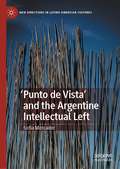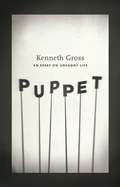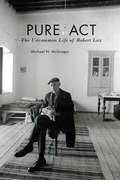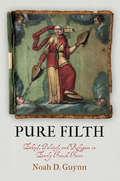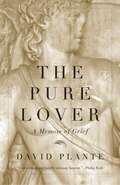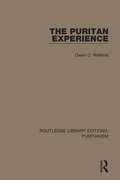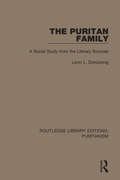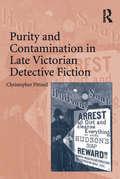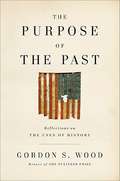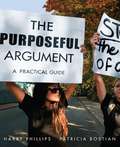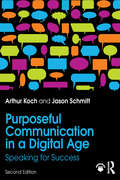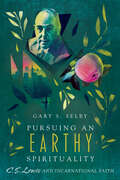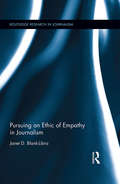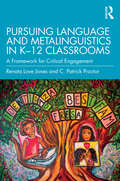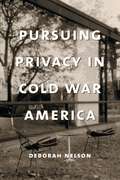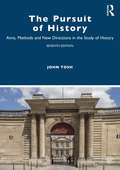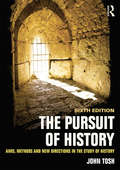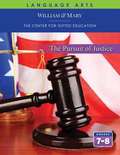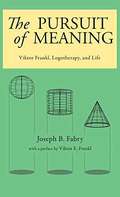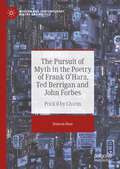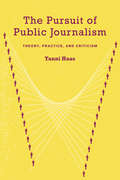- Table View
- List View
'Punto de Vista' and the Argentine Intellectual Left (New Directions in Latino American Cultures)
by Sofía MercaderThis book is the first comprehensive account of the Argentine magazine Punto de Vista (1978–2008), a cultural review that gathered together prominent Argentine intellectuals throughout the last quarter of the twentieth century. Directed by cultural historian and public intellectual Beatriz Sarlo, the story of the magazine serves as a lens to study the evolution of Argentine intellectuals from the leftist mobilization of the 1960s through periods of military dictatorship and then the shifting politics of democratization in the 1980s and 1990s. The book argues that the way in which the Argentine intellectual left negotiated the political and cultural transformations of the late twentieth century can be understood as the history of two political defeats: that of the revolutionary utopias of the 1960s and 1970s and that of the social democrat project in the 1980s. By adopting an interdisciplinary approach, this book encompasses a wide range of debates taking place in Argentina, from the years prior to the dictatorship to the postdictatorship period.
Puppet: An Essay on Uncanny Life
by Kenneth Gross&“Offering endless insights into the strange and archaic world of puppets . . . This is a book of literary mysticism, rich with accrued culture.&” —John Rockwell, The New York Times Book Review The puppet creates delight and fear. It may evoke the innocent play of childhood, or become a tool of ritual magic, able to negotiate with ghosts and gods. Puppets can be creepy things, secretive, inanimate while also full of spirit, alive with gesture and voice. In this eloquent book, Kenneth Gross contemplates the fascination of these unsettling objects—objects that are also actors and images of life. The poetry of the puppet is central here, whether in its blunt grotesquery or symbolic simplicity, and always in its talent for metamorphosis. On a meditative journey to seek the idiosyncratic shapes of puppets on stage, Gross looks at the anarchic Punch and Judy show, the sacred shadow theater of Bali, and experimental theaters in Europe and the United States, where puppets enact everything from Baroque opera and Shakespearean tragedy to Beckettian farce. Throughout, he interweaves accounts of the myriad faces of the puppet in literature—Collodi&’s cruel, wooden Pinocchio, puppetlike characters in Kafka and Dickens, Rilke&’s puppet-angels, the dark puppeteering of Philip Roth&’s Micky Sabbath—as well as in the work of artists Joseph Cornell and Paul Klee. The puppet emerges here as a hungry creature, seducer and destroyer, demon and clown. It is a test of our experience of things, of the human and inhuman. A book about reseeing what we know, or what we think we know, Puppet evokes the startling power of puppets as mirrors of the uncanny in life and art.
Puppy's ABC
by Helen PiersAn ABC book illustrated with photography of a small puppy and objects beginning with each letter.
Pure Act: The Uncommon Life of Robert Lax (Catholic Practice in North America)
by Michael N. McgregorThe only biography to receive awards from both the Association of Catholic Publishers and the Catholic Press Association in 2016. A companion piece to Thomas Merton's bestselling autobiography The Seven Storey Mountain, Pure Act: The Uncommon Life of Robert Lax tells the story of Merton's best friend and early spiritual inspiration. Written by a close friend of Lax, Pure Act gives an intimate view of a friendship and a life that affected Merton in profound ways. It was Lax, a daringly original poet himself, who encouraged Merton to begin writing poetry and Lax who told him he should desire to be a saint rather than just a Catholic. To the end of Merton's life, Lax was his spiritual touchstone and closest friend. Pure Act tells the story of poet Robert Lax, whose quest to live a true life as both an artist and a spiritual seeker inspired Thomas Merton, Jack Kerouac, William Maxwell and a host of other writers, artists and ordinary people. Known in the U.S. primarily as Merton’s best friend and in Europe as a daringly original avant-garde poet, Lax left behind a promising New York writing career to travel with a circus, live among immigrants in post-war Marseilles and settle on a series of remote Greek islands where he learned and recorded the simple wisdom of the local people. Born a Jew, he became a Catholic and found the authentic community he sought in Greek Orthodox fishermen and sponge divers. In his early life, as he alternated working at the New Yorker, writing screenplays in Hollywood and editing a Paris literary journal with studying philosophy, serving the poor in Harlem and living in a sanctuary high in the French Alps, Lax pursued an approach to life he called pure act—a way of living in the moment that was both spontaneous and practiced, God-inspired and self-chosen. By devoting himself to simplicity, poverty and prayer, he expanded his capacity for peace, joy and love while producing distinctive poetry of such stark beauty critics called him “one of America’s greatest experimental poets” and “one of the new ‘saints’ of the avant-garde.” Written by a writer who met Lax in Greece when he was a young seeker himself and visited him regularly over fifteen years, Pure Act is an intimate look at an extraordinary but little-known life. Much more than just a biography, it’s a tale of adventure, an exploration of friendship, an anthology of wisdom, and a testament to the liberating power of living an uncommon life.
Pure Filth: Ethics, Politics, and Religion in Early French Farce (The Middle Ages Series)
by Noah D. GuynnAs Noah D. Guynn observes, early French farce has been summarily dismissed as filth for centuries. Renaissance humanists, classical moralists, and Enlightenment philosophes belittled it as an embarrassing reminder of the vulgarity of medieval popular culture. Modern literary critics and theater historians often view it as comedy's poor relation—trite, smutty pap that served to divert the masses and to inure them to lives of subservience. Yet, as Guynn demonstrates in his reexamination of the genre, the superficial crudeness and predictability of farce belie the complexities of its signifying and performance practices and the dynamic, contested nature of its field of reception. Pure Filth focuses on overlooked and occluded content in farce, arguing that apparently coarse jokes conceal finely drawn, and sometimes quite radical, perspectives on ethics, politics, and religion.Engaging with cultural history, political anthropology, and critical, feminist, and queer theory, Guynn shows that farce does not pander to the rabble in order to cultivate acquiescence or curb dissent. Rather, it uses the tools of comic theater—parody and satire, imitation and exaggeration, cross-dressing and masquerade—to address the urgent issues its spectators faced in their everyday lives: economic inequality and authoritarian rule, social justice and ethical renewal, sacramental devotion and sacerdotal corruption, and heterosocial relations and household politics. Achieving its subtlest effects by employing the lewdest forms of humor, farce reveals that aspirations to purity, whether ethical, political, or religious, are inevitably mired in the very filth they repudiate.
The Pure Lover: A Memoir of Grief
by David PlanteA powerful and tragic memoir about the lifelong love between two men, from a well-loved and critically acclaimed author.
The Puritan Experience
by Owen C. WatkinsOriginally published in 1972 and based on extensive research and use of source materials including manuscripts, this book examines Puritan spiritual autobiographies written before 1725 and sets them in the context of the literary tradition out of which they grew. As well as Bunyan, Baxter and Fox, this book also discusses important works which have received less attention, notably the Confessions of Richard Norwood, the Bermudan settler. The book identifies 3 strands in the tradition: the work of the ‘orthodox’ Puritans; the prophets of the Commonwealth, and the confessions and journals of the early Quakers. The social, religious and literary factors which contributed to their development are discussed and it is shown how the self-analysis popularized by the Puritan preachers and writers contributed to the development of the novel. The book will be of particular value to those interested in 17th Century literature or religion.
The Puritan Family: A Social Study from the Literary Sources
by Levin L. SchückingOriginally published in 1969, this study examines the religious and ethical community which had an immense influence on the spiritual development of the Anglo-American world – the family in Puritan England. The book makes extensive reference to the outstanding literary works of the period and to the Puritan ‘conduct-books’, thus illustrating the Puritan way of thinking and attitude to life and showing the relationship between the development of literary taste and the social class system.
Purity and Contamination in Late Victorian Detective Fiction
by Christopher PittardConcentrating on works by authors such as Fergus Hume, Arthur Conan Doyle, Grant Allen, L.T. Meade, and Marie Belloc Lowndes, Christopher Pittard explores the complex relation between the emergence of detective fictions in the 1880s and 1890s and the concept of purity. The centrality of material and moral purity as a theme of the genre, Pittard argues, both reflected and satirised a contemporary discourse of degeneration in which criminality was equated with dirt and disease and where national boundaries were guarded against the threat of the criminal foreigner. Situating his discussion within the ideologies underpinning George Newnes's Strand Magazine as well as a wide range of nonfiction texts, Pittard demonstrates that the genre was a response to the seductive and impure delights associated with sensation and gothic novels. Further, Pittard suggests that criticism of detective fiction has in turn become obsessed with the idea of purity, thus illustrating how a genre concerned with policing the impure itself became subject to the same fear of contamination. Contributing to the richness of Pittard's project are his discussions of the convergence of medical discourse and detective fiction in the 1890s, including the way social protest movements like the antivivisectionist campaigns and medical explorations of criminality raised questions related to moral purity.
The Purpose of the Past
by Wood Gordon S.History is to society what memory is to the individual. Without it, we don t know who we are and we can t make wise decisions about our future. But while the nature of memory is constant, the nature of history has changed radically over the past forty years. In The Purpose of the Past, historian Gordon S. Wood examines this sea change in his field through consideration of some of its most important historians and their works. He offers wonderful insight into what great historians do, how they can stumble, and what strains of thought have dominated the marketplace of ideas in historical scholarship. The result is a history of American history, as well as an argument for its ongoing necessity. A commanding assessment of the field by one of its masters, The Purpose of the Past will enlarge every reader s capacity to appreciate history.
The Purposeful Argument: A Practical Guide
by Harry L. Phillips Patricia BostianTHE PURPOSEFUL ARGUMENT: A PRACTICAL GUIDE encourages students to recognize where argument fits into their lives and into the many communities to which they belong. With a focus on accessibility, THE PURPOSEFUL ARGUMENT relies on clear explanations, explicit examples, and practical step-by-step exercises that guide students through the process of building an argument.
Purposeful Communication in a Digital Age: Speaking for Success
by Jason Schmitt Arthur KochIn recent years, the process and outlet for public speaking has grown with digital progressions such as TED talks and Facebook Live. Purposeful Communication in a Digital Age, 2nd Edition, provides a practical, step-by-step approach to developing and delivering effective speeches. Offering supplementary articles, case studies, and interviews with key leaders within the text and online, this is an all-in-one resource for the traditional, online, or hybrid classroom. The new edition devotes focus to presenting in the digital world, addressing both traditional and contemporary forms of presentation, and specifically directs students on seeking out credible sources when conducting research. Its eResource features video speech examples, classroom exercises, an instructor manual, and a quiz bank.
Purrieties of Language: How We Talk about Cats Online
by Edith PodhovnikAfter conquering the Internet, cats are now taking on linguistics! Since the advent of social media, cats have become a topic central to online communication, and the multitude of cat-related accounts now online has made this a world-wide phenomenon. Through cat-inspired varieties of language, we have developed a genre of cat-inspired vocabulary. And on our special social media accounts for our cats, we take on their identities, as we post, write, talk, and chat - as our feline friends. This innovative book provides linguistic analyses of the cyber 'Cativerse', exploring online language variation, and explaining key linguistic concepts – all through the lens of cat-related communication. Each chapter explores a different sociolinguistic phenomena, drawing on fun and engaging examples including memes, hashtags, captions and 'LOLcats', from platforms such as Instagram, Facebook, YouTube and Twitter. Innovative yet accessible, it is catnip for all 'hoomans' interested in how language is used online.
Pursuing an Earthy Spirituality: C. S. Lewis and Incarnational Faith
by Gary S. Selby"Red beef and strong beer" was how C. S. Lewis described his education under one of his early tutors. It was, in other words, a substantial education that engaged deeply with the intellectual tradition and challenged him to grow. Gary Selby sees Lewis's expression as an indication of the kind of transformation that is both possible and necessary for the Christian faith, and he contends that spiritual formation comes about not by retreating from the physical world but through deeper engagement with it. By considering themes such as our human embodiment, our sense of awareness in our everyday experiences, and the role of our human agency—all while engaging with the writings of Lewis, who himself enjoyed food, drink, laughter, and good conversation—Selby demonstrates that an earthy spirituality can be a robust spirituality.
Pursuing an Ethic of Empathy in Journalism (Routledge Research in Journalism)
by Janet Blank-LibraThis book advances a journalistic theory of empathy, challenging long-held notions about how best to do journalism. Because the institution of journalism has typically equated empathy and compassion with bias, it has been slow to give the intelligence of the emotions a legitimate place in the reporting and writing process. Blank-Libra’s work locates the point at which the vast, multidisciplinary research on empathy intersects with the work of the journalist, revealing a reality that has always been so: journalists practice empathy as a way to connect but also as a form of inquiry, as sincere and legitimate in its goals and aspirations as is objectivity.
Pursuing Language and Metalinguistics in K–12 Classrooms: A Framework for Critical Engagement
by Renata Love Jones C. Patrick ProctorThis conceptually expansive volume provides a theoretical framework and practical guide for designing and implementing literacy instruction that promotes students’ critical metalinguistic awareness in K–12 classroom contexts.Grounded in varied instructional contexts, the chapters present theories of language and overviews of research in ways that are accessible and engaging. Through innovative research and practical examples, the authors show how educators can address content areas, modalities, and K–12 student populations in increasingly diverse classroom spaces.Concrete instructional examples throughout, along with a culminating set of teacher vignettes, make this text an invaluable resource for pre-service teachers, graduate students, and scholars in the field of literacy education.
Pursuing Privacy in Cold War America (Gender and Culture Series)
by Deborah NelsonPursuing Privacy in Cold War America explores the relationship between confessional poetry and constitutional privacy doctrine, both of which emerged at the end of the 1950s. While the public declarations of the Supreme Court and the private declamations of the lyric poet may seem unrelated, both express the upheavals in American notions of privacy that marked the Cold War era. Nelson situates the poetry and legal decisions as part of a far wider anxiety about privacy that erupted across the social, cultural, and political spectrum during this period. She explores the panic over the "death of privacy" aroused by broad changes in postwar culture: the growth of suburbia, the advent of television, the popularity of psychoanalysis, the arrival of computer databases, and the spectacles of confession associated with McCarthyism.Examining this interchange between poetry and law at its most intense moments of reflection in the 1960s, '70s, and '80s, Deborah Nelson produces a rhetorical analysis of a privacy concept integral to postwar America's self-definition and to bedrock contradictions in Cold War ideology. Nelson argues that the desire to stabilize privacy in a constitutional right and the movement toward confession in postwar American poetry were not simply manifestations of the anxiety about privacy. Supreme Court justices and confessional poets such as Anne Sexton, Robert Lowell, W. D. Snodgrass, and Sylvia Plath were redefining the nature of privacy itself. Close reading of the poetry alongside the Supreme Court's shifting definitions of privacy in landmark decisions reveals a broader and deeper cultural metaphor at work.
Pursuing Privacy in Cold War America (Gender and Culture Series)
by Deborah NelsonPursuing Privacy in Cold War America explores the relationship between confessional poetry and constitutional privacy doctrine, both of which emerged at the end of the 1950s. While the public declarations of the Supreme Court and the private declamations of the lyric poet may seem unrelated, both express the upheavals in American notions of privacy that marked the Cold War era. Nelson situates the poetry and legal decisions as part of a far wider anxiety about privacy that erupted across the social, cultural, and political spectrum during this period. She explores the panic over the "death of privacy" aroused by broad changes in postwar culture: the growth of suburbia, the advent of television, the popularity of psychoanalysis, the arrival of computer databases, and the spectacles of confession associated with McCarthyism.Examining this interchange between poetry and law at its most intense moments of reflection in the 1960s, '70s, and '80s, Deborah Nelson produces a rhetorical analysis of a privacy concept integral to postwar America's self-definition and to bedrock contradictions in Cold War ideology. Nelson argues that the desire to stabilize privacy in a constitutional right and the movement toward confession in postwar American poetry were not simply manifestations of the anxiety about privacy. Supreme Court justices and confessional poets such as Anne Sexton, Robert Lowell, W. D. Snodgrass, and Sylvia Plath were redefining the nature of privacy itself. Close reading of the poetry alongside the Supreme Court's shifting definitions of privacy in landmark decisions reveals a broader and deeper cultural metaphor at work.
The Pursuit of History: Aims, Methods and New Directions in the Study of History
by John ToshThis classic introduction to the study of history invites the reader to stand back and consider some of its most fundamental questions – what is the point of studying history? How do we know about the past? Does an objective historical truth exist and can we ever access it? In answering these central questions, John Tosh argues that, despite the impression of fragmentation created by Postmodernism in recent years, history is a coherent discipline which still bears the imprint of its nineteenth-century origins. Consistently clear-sighted, he provides a lively and compelling guide to a complex and sometimes controversial subject, while making his readers vividly aware of just how far our historical knowledge is conditioned by the character of the sources and the methods of the historians who work on them. History does not stand still, and this updated seventh edition deals with complex and wide-ranging material in a clear and accessible way that is up-to-date with current historiographical trends. A fuller treatment is given to the importance of digitization both in the section on source criticism and in relation to public history, reflecting its growing importance within historical study. Both the text and references have been expanded to include a fuller range of both American and global scholarship, and the book concludes with a forthright reminder that historical perspective illuminates major problems in the present. Lucid and engaging, this edition retains the user-friendly features that make it a favourite with both students and lecturers, including marginal glosses, illustrations and suggestions for further reading. Along with its companion website, this is an essential guide to the theory and practice of history.
The Pursuit of History: Aims, methods and new directions in the study of history
by John ToshThis classic introduction to the study of history invites the reader to stand back and consider some of its most fundamental questions - what is the point of studying history? How do we know about the past? Does an objective historical truth exist and can we ever access it? In answering these central questions, John Tosh argues that, despite the impression of fragmentation created by postmodernism in recent years, history is a coherent discipline which still bears the imprint of its nineteenth-century origins. Consistently clear-sighted, he provides a lively and compelling guide to a complex and sometimes controversial subject, while making his readers vividly aware of just how far our historical knowledge is conditioned by the character of the sources and the methods of the historians who work on them. The sixth edition has been revised and updated with key new material including: - a brand new chapter on public history - sections on digitised sources and historical controversy - discussion of topics including transnational history and the nature of the archive - an expanded range of examples and case studies - a comprehensive companion website providing valuable supporting material, study questions and a bank of primary sources. Lucid and engaging, this edition retains all the user-friendly features that have helped to make this book a favourite with both students and lecturers, including marginal glosses, illustrations and suggestions for further reading. Along with its companion website, this is an essential guide to the theory and practice of history.
The Pursuit of Justice Student Guide Grades 7 & 8
by Mary Ann YedinakPursuit of Justice is a special language arts unit designed for students with a high ability to "delving into literature and making connections to society and life."
The Pursuit Of Meaning: Viktor Frankl, Logotherapy, And Life
by Joseph B. Fabry Viktor E. FranklContains the essence of the logotherapeutic writings of Viktor Frankl, who noted that many readers report that they understand some parts of logotherapy for the first time after reading this book. Fabry wrote in the introduction: Many older therapies place responsibility for our difficulties on our early upbringing. Logotherapy is "education to responsibility." Outside influences are important but not all-determining. Within limitations we have a say about who we are and who we want to become. We need never let ourselves be reduced to helpless victims. Consequently, logotherapy-unlike therapies that aim at equilibrium by adjusting patients to society-does not see a tensionless life as a therapeutic goal. Tension is part of living as a human being in a human society. To remain healthy, the unhealthy tensions of body and psyche are to be avoided. But the healthy tension of the spirit strengthens our spiritual muscles. The healthiest tension is between what we are and what we have the vision of growing toward, or, to use Frankl's favorite phrase, "the tension between being and meaning" (Psychotherapy and Existentialism, p. 10). The struggle for meaning is not easy. Life does not owe us pleasure; it does offer us meaning. Mental health does not come to those who demand happiness but to those who find meanings; to them happiness comes as a side product. "It must ensue" noted Frankl. "It cannot be pursued" (Unconscious God, p. 85). Logotherapy maintains and restores mental health by providing a sound view of the human being and the world as we know it. It draws on the huge reservoir of health stored in our specifically human dimension-our creativity, our capacity to love, our reaching out to others, our desire to be useful, our ability to orient to goals, and our will to meaning. Logophilosophy emphasizes what is right with us, what we like about ourselves, our accomplishments, and our peak experiences. It also considers the qualities we dislike so we may change them, our failures so we can learn from them, our abysses so we may lift ourselves up, knowing that peaks exist and can be reached.
The Pursuit of Myth in the Poetry of Frank O'Hara, Ted Berrigan and John Forbes: Prick'd by Charm (Modern and Contemporary Poetry and Poetics)
by Duncan HoseThe Pursuit of Myth in the Poetry of Frank O'Hara, Ted Berrigan and John Forbes traces a tradition of revolutionary self-mythologising in the lives and works of Frank O’Hara, Ted Berrigan and John Forbes, as a significant trefoil in twentieth-century English language poetry. All three had untimely deaths, excited a collective homage, and developed cult followings that reverberate today. This book tracks the transmission of the poem as charm, the poet as charmer, and the reinstitution of troubadour erotics as a kind of social poetics. Starting with Orpheus, the book refreshes the myth of the poet as mythmaker, examining how myths of “self” and “nation” are regenerated for the twenty-first century and how persons-as-myths are made in community through coteries of artists and beyond. Duncan Bruce Hose’s critical vocabulary, with its nucleus of mythos, searches the edges of phenomenal enquiry, closing in on the work of “glamour”, “aura”, “charm”, “possession”, “phantasm”, the “daemonic”, and the logic of haunting in the continuing being of these three poets as “charismatic animals”.
The Pursuit of Public Journalism: Theory, Practice and Criticism
by Tanni HaasThe Pursuit of Public Journalism is an engaging introduction to the theoretical foundations and practices of the journalistic reform movement known as 'public journalism.' Public journalism - stated briefly - seeks to reinvest journalism with its fundamental responsibilities to democracy and public life. This book argues against many deeply ingrained practices ranging from journalistic detachment to framing stories via polar conflict in favor of greater civic involvement on the part of journalists. Tanni Haas traces the historical context in which public journalism emerged, develops a philosophy for public journalism, reviews empirical research on public journalism’s performance to date and responds to the major criticisms directed at public journalism. He also examines the particular challenges that public journalism poses to curriculum and instruction: how can journalism educators teach students to write stories useful and of concern to citizens, and how can they encourage citizens to publicly criticize news coverage of given topics? Following review of the major challenges and criticisms of public journalism, the author offers practical solutions for improving public journalism and speculates on public journalism’s likely future.
